Policymaking For Net Zero
location→ South Yorkshire
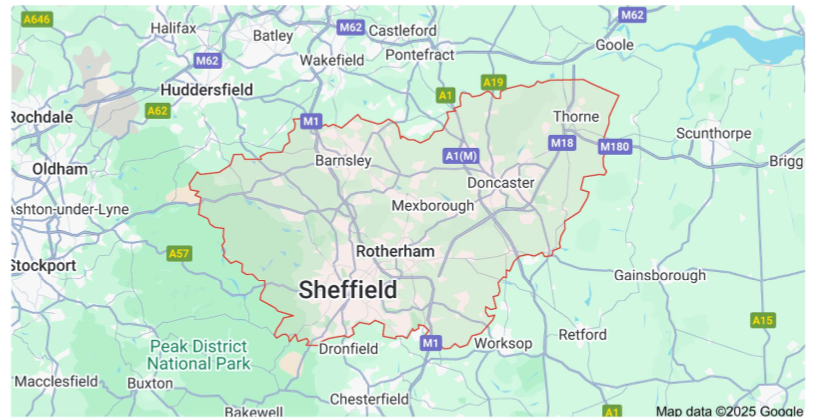
International/National Context-
UK government sign international treaties e.g. Paris Agreement (limit global warming to 1.5 degrees)→ are adopted by the countries e.g. UK Climate Change Act→ converted into strategies and initiatives (looking at what it means for sectors e.g. transport)→ falls away at delivery
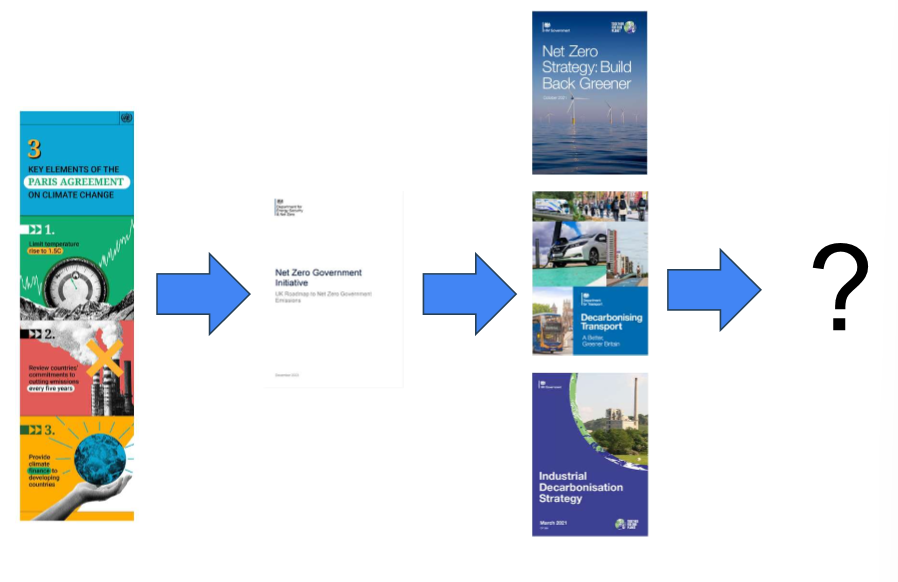
UK target to achieve net 0 by 2050 lacks the division and delivery to the people that can do that
Is this working globally? NO
are not on track to meet 1.5 degrees increase, 2024 was the hottest year on record
atmospheric CO2 is increasing:
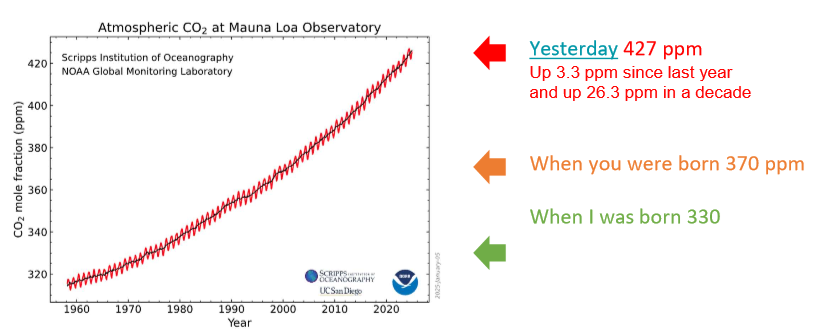
discovered a hole in the ozone layer→ wrote Montreal Protocol→ cut down CFC use→ legislation that said it needs to reduced→ was reduced→ hole is shrinking
shows how international effort can work
issue cannot solve itself
need to identify problem, identify cause of problem, set legislations, fix problem
needs collaboration
Is it working nationally? NO
The Committee on Climate Change→
UK government’s independent body that advises parliament if we are working towards goals
publishes advice every year to parliament about where the gaps are
set carbon budgets→ are more important than Net Zero as they are reducing it over time and how they can be achieved in 5 year periods
Why is it failing?
climate change is not embedded in all decisions, is seen as an add-on in all policy making, is not widely understood
climate change is used by political opportunist- is not a politically neutral issue
don’t value the future cost of decisions made today, may need to spend more locally to solve a problem globally→ needs everyone to act
keep focusing on an end goal rather than the step-wise decisions and rates of change
What is policy?
definition→ a strategy is a plan of action that is designed to realise your goals and objectives. Policies guide strategy while strategies aim to realise policy objectives and outcomes. Policies outline decisions made by an organisation to achieve a specific outcome.
however, policy gets confused between strategies and goals and objectives→ can be huge documents, press releases, single statements with no evidence or structure behind them
types of policies:
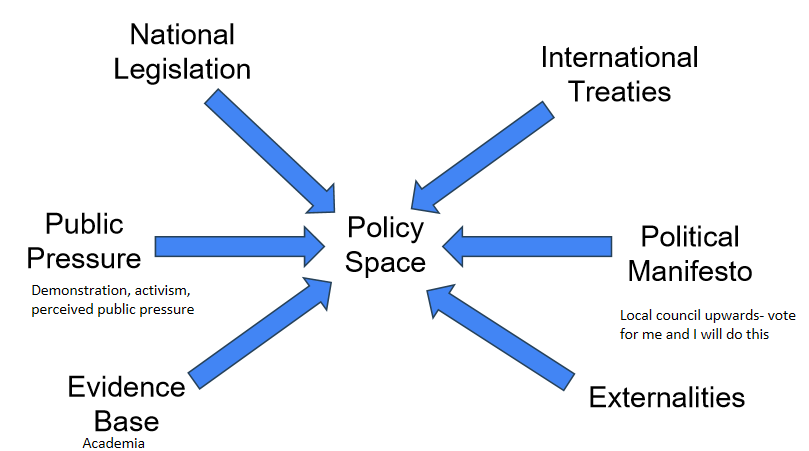
what do we do with policies:
policy as rule book→ setting physical rules and fitting actions into these (what government does)

policy as guidance→ plan, do, check, act- do something, look at outcomes and impacts, modify next acts

model of understanding how to make policies→ 3 A’s:
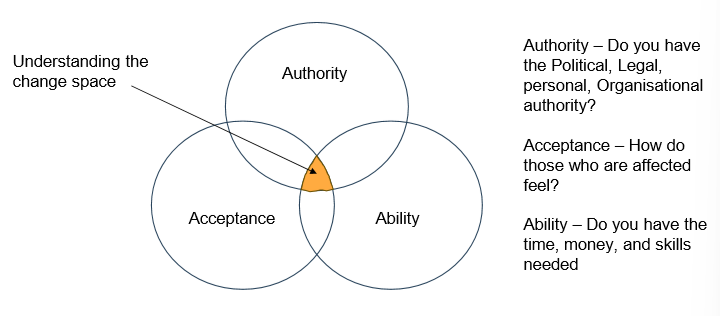
→ use this to look at changes and see if it is something you are going to set or will ask others to do on your behalf
Who makes policies?
National government (set policies)→
legislative, executive, judiciary
civil service→ people who deliver on things executives want
people only vote in house of commons, lots happens out of control
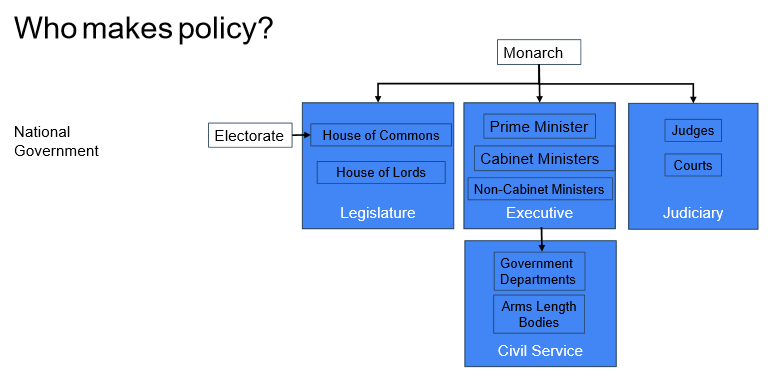
Local and regional governments are more complicated:
parish council→ nearest links to communities
local authorities→ council
regional and combined authorities
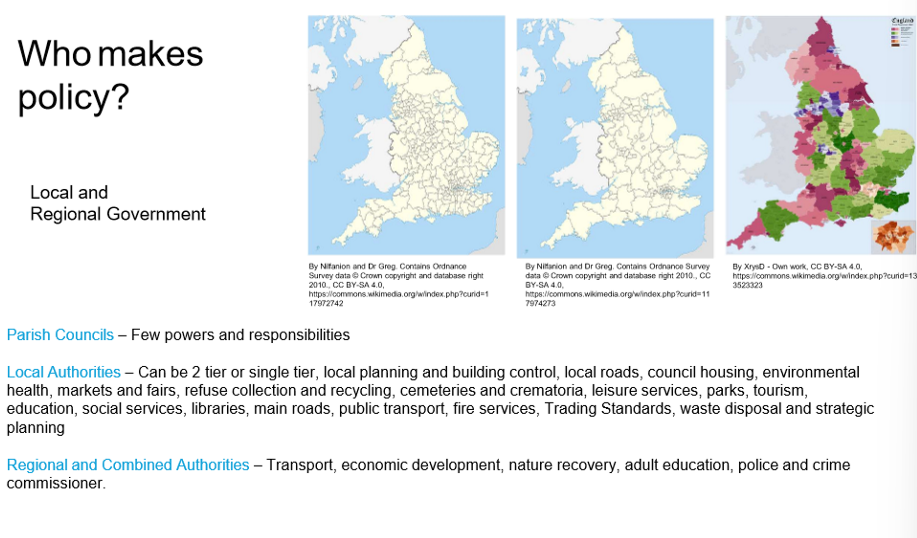
worked for the South Yorkshire Mayoral Combined Authority→ level of regional government, devolution, theory is that it gives more power to regions but doesn’t do that necessarily
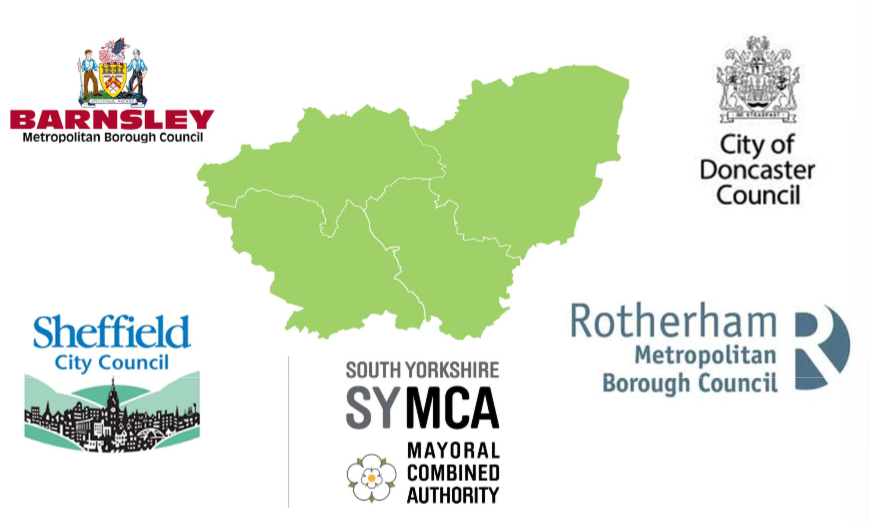
there is confusion about who owns net 0/decarbonisation
within SY, none of the net 0 targets from the four constituency local authorities and combined authority match→ confusion of local and regional actors, even though combined authority is made up of these
Policymaking in net 0-
believe that one thing missing is gaining public support for it
SY mayor said he would hold a citizens assembly on net 0 and get public support for the action needed
some believe public support already exists→ most people do want action
held a citizen’s assembly:
100 demographically and geographically representative people of SY
had a learning phase, deliberation phase, decision-making phase
asked the overarching question: The way our climate is changing will impact us all. How should we respond, to build a thriving and sustainable future for South Yorkshire?
finished in December 2023 and are still talking about how to deliver these
found that people want things in their local communities, want to feel part of it want action, want improvements in their lives:
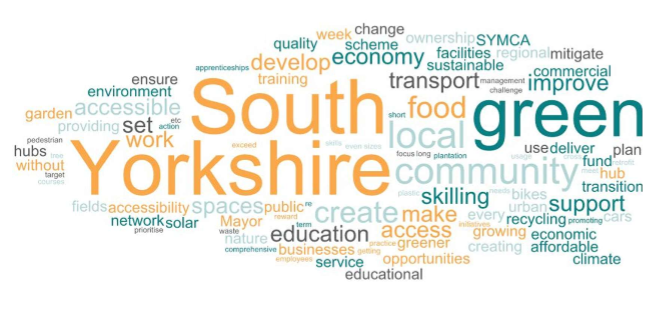
Net 0 local context:
2019→ SYMCA declared a climate and environment emergency
2020→ set a target of NetZero for 2040
carbon emissions in SY→
there is not one area where carbon emissions come from
largest ones are domestic gas (heating and cooking in homes) and transport
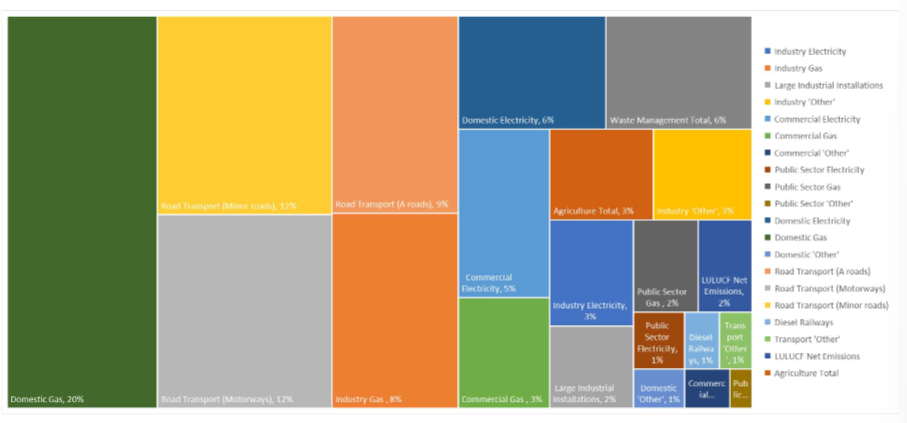
→ shows there is not a single strategy, has to be embedded in every area
can see changes in numbers from central government from 2005-2022-
2008- financial crash was represented on graph, shows things we do directly impact carbon emissions→ industrial and commercial downturn
2020→ pandemic impacted different things- industry carried on, less cars made less emissions
Lockdown finished, downturn went back up again
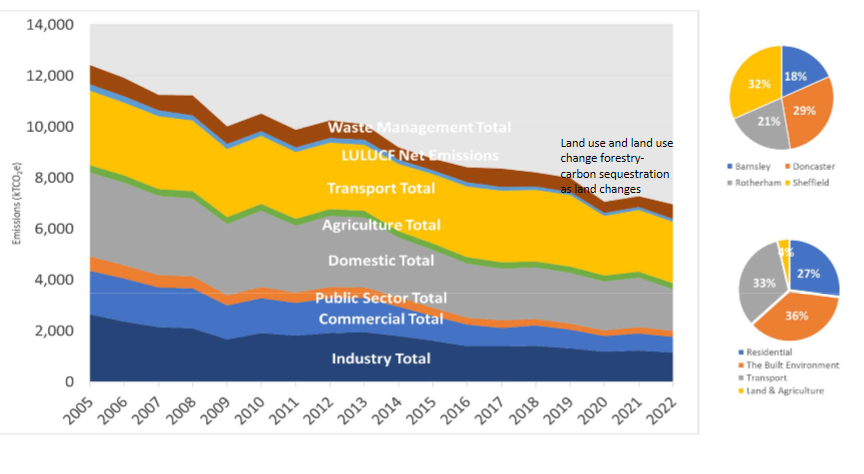
the grid decarbonisation was the main reason for these decreases→ has helped every sector except transport
can use this to see what is our pathway? what do we need to do? predict what you do from current policies, create policy gap- shows where we need to act
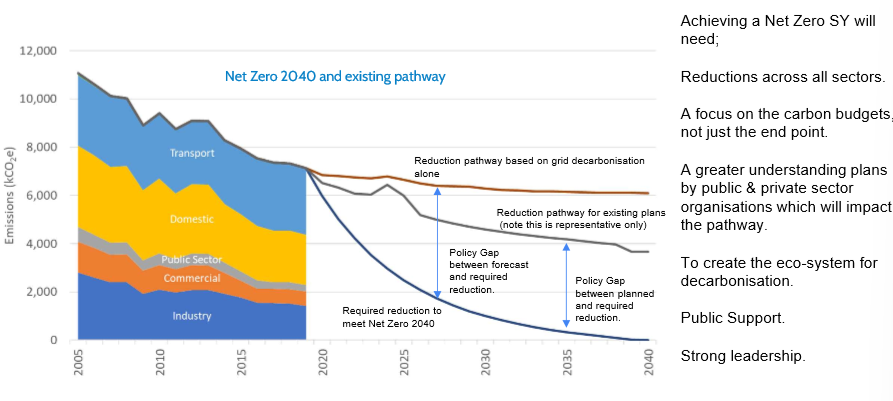
Local Issues:
still rely too much on natural gas, petrol and diesel
are getting to the point where grid decarbonisation is nearly complete so will not get much more from that
local issues→ Sheffield is one of the most diverse population in terms of income- fuel poverty
lack of focus on adaption and resilience, Doncaster will be underwater
SY has one of the poorest economies
SY is not an industrial cluster→ is not one of the governments targets so don’t get extra money
Solutions:
use less energy, be more efficient, less demands→ graphs prove this can work
increasing renewable energy→ need more community use and production of energy
electrify basically everything e.g. heat, industry, transport
fuel switching but may not be the answer
natural solutions→ focusing on sequestration of carbon in soils, peatland, trees…
needs leadership→ no local leadership explaining this, can be those not in leadership too, alternative democracies e.g. Cooperation Sheffield
→ fundamental problem is the measures of regional success are incompatible with creating a sustainable future
talk about economic growth, not wellbeing
don’t talk about people, talk about the economy
Doncaster-Sheffield airport:
was a small airport but served people for holidays and European airports supporting a migrant workforce in NE Lincolnshire and Doncaster
2 issues→ pandemic, left EU→ both its markets disappeared
commercial decision was to close airport, 800 people would lose their jobs
airports work as a market→ people choose where to go, not the airport
all local politicians were arguing with who wanted to reopen the airport more:
Mayor of Doncaster Roz Jones→ reopening airport was her number 1 priority
Mayor of Rotherham Oliver Coppard→ fully committed to reopening the airport, put in £138m of public money
believed it would stimulate economic growth, be a catalyst to growing SY economy, with no harm to anyone anywhere
saveDSA campaign→
by Mark Chadwick
talked about employing 5000 people and adding £6.6.billion gross value add
would act as a catalyst for sustainable aviation, through displace people to local airport
regional pride
however, what they measure as success is incompatible for a sustainable future→ sustainable needs to be environemntal, equity and economy- links closer to the SDGs,
rebuilding the airport fails all these tests
50% of people in SA will not fly this year- doesn’t help local people, the jobs will be low-wage, low-security, a few good jobs wont live here, economy- no evidence that regional airports will deliver economic growth, majority of profits will got multinational companies that arent based here, environment- will damage environemnt
advice→ until you have a way of managing demand, you should not expand airports
local politicians believe the right thing to do is to put money into this airport but is counter to the other targets
baze, desnez- two years in the rears- breaks down local authority data
have to compete for money and instead but there is so much more we could be doing if we were collaborative
620,000 houses in SY, 64% are less thna na EPCC→ all need interventions
 Knowt
Knowt